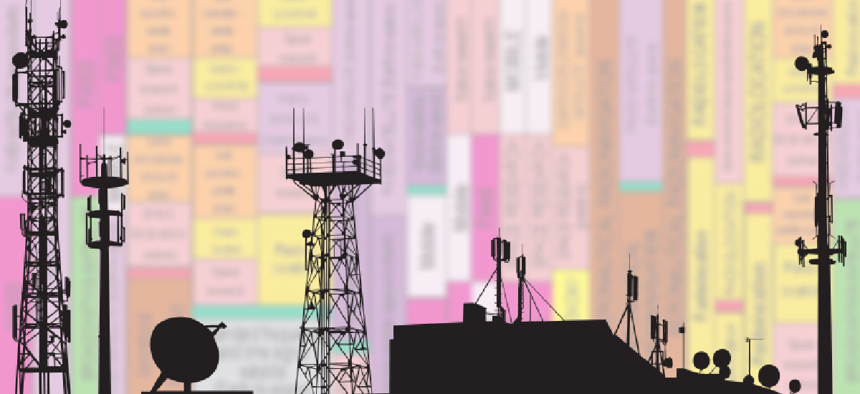Pushing spectrum boundaries


Connecting state and local government leaders
The Federal Communications Commission wants to open up a section of high-frequency spectrum for experimental use.
The Federal Communications Commission wants to expand access to a section of high-frequency spectrum to see if innovators and entrepreneurs can effectively commercialize it.
The agency, with unanimous approval from its five commissioners, issued a proposed rulemaking notice on Feb. 22 to expand access to a total of 102.2 gigahertz of spectrum for licensed point-to-point services above 95 GHz, unlicensed operations, and a new class of experimental licenses above 95 GHz.
The bandwidth is so high on the spectrum that the space is currently unused. The FCC said it "has long been considered the outermost horizon of the usable spectrum range." The Earth's atmosphere tends to soak up transmissions in such high bandwidth ranges, just as it does with x-rays, infrared and ultraviolet rays from the sun. Systems that use the bandwidth will have to adapt to the phenomenon.
The bandwidth is so remote that the commission currently has no rules that permit licensed or unlicensed communications use above 95 GHz, other than by amateur operators or on an experimental basis.
"The history of wireless innovation is one of government creating space for broad thinking and entrepreneurs using that space to take us in unexpected directions," Pai said in a Feb 21 blog post preceding the plan's release. "With this order, we'll set up a big sandbox for engineers and technologists to work with -- and we'll then see what American ingenuity delivers."
"Developments in these bands could help relieve what some have labeled as a 'spectrum crunch,'" Commissioner Mignon Clyburn said in a statement. The move will "likely translate into utilizing more spectrum for weather and air traffic control radars," he added.
The federal government is in the midst of a decade-long plan to identify and open up 500 megahertz of federal and non-federal spectrum for commercial use.
The FCC said it wants the spectrum bands above 95 GHz bands to be licensed on a nationwide, non-exclusive basis, with individual point-to-point links registered with a database manager.
Because of the vast amount of spectrum potentially available, the point-to-point links might be able to transmit at much higher data rates than systems in lower frequency bands.
The FCC also said that the short life span of transmissions in the bandwidth because of atmospheric absorption could be an advantage, allowing many licenses for applications within smaller spaces with potentially less interference.
This article was first posted to FCW, a sibling site to GCN.




